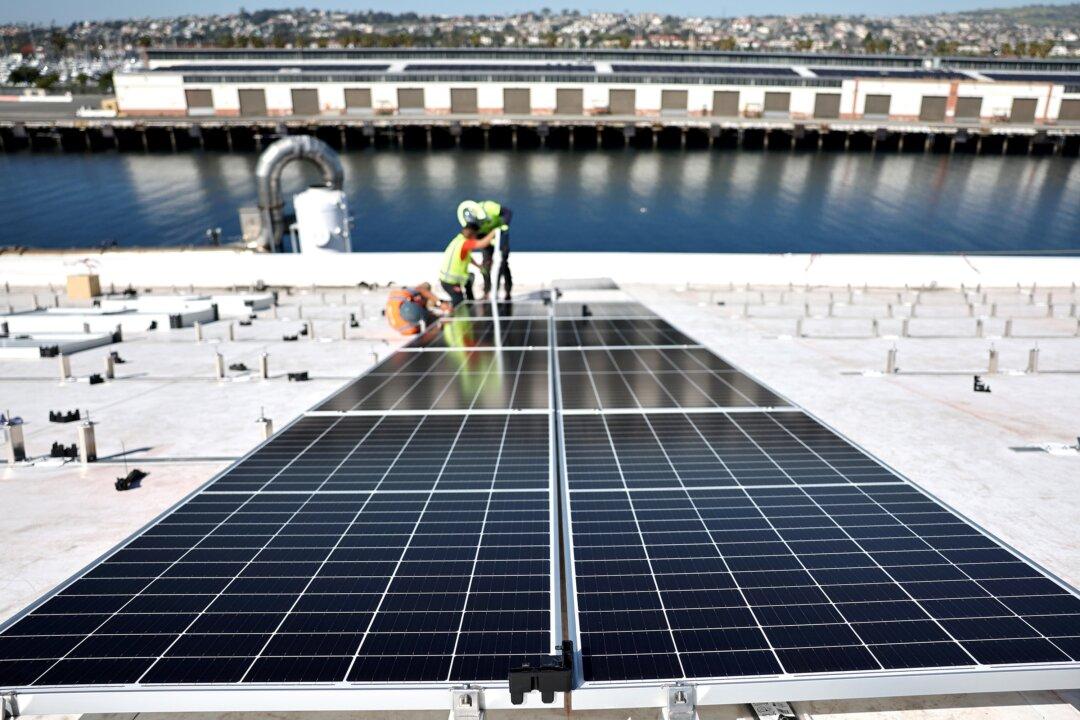The House of Representatives passed a Congressional Review Act (CRA) resolution on Friday to overturn a Biden administration policy that paused tariffs on imported solar panels.
The resolution, H.J. Res. 39, passed in the House by a vote of 221–202. Twelve Democrats joined the majority of Republicans who voted in favor of the bill, while eight Republicans opposed the resolution.





